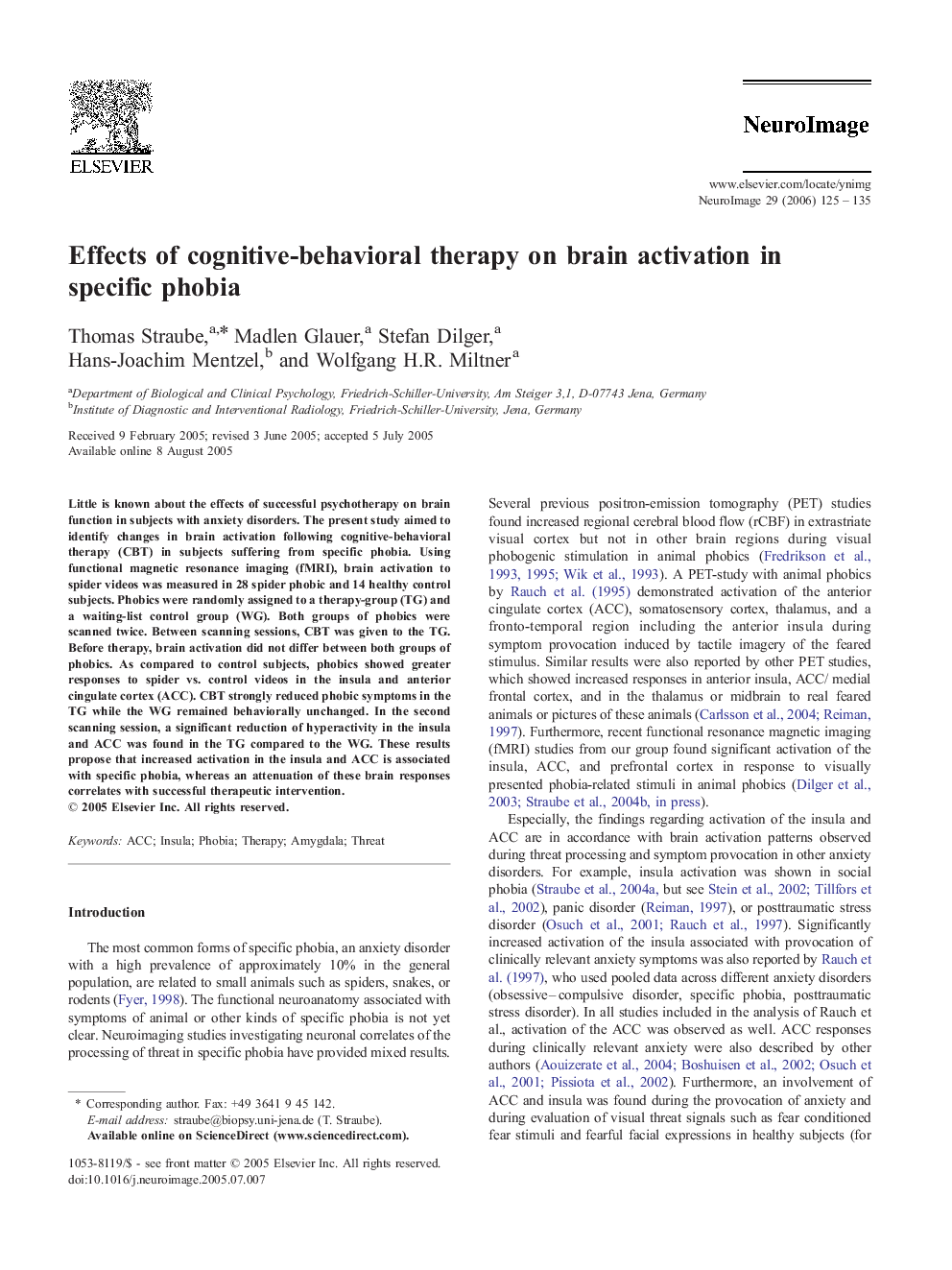| Article ID | Journal | Published Year | Pages | File Type |
|---|---|---|---|---|
| 3074599 | NeuroImage | 2006 | 11 Pages |
Little is known about the effects of successful psychotherapy on brain function in subjects with anxiety disorders. The present study aimed to identify changes in brain activation following cognitive-behavioral therapy (CBT) in subjects suffering from specific phobia. Using functional magnetic resonance imaging (fMRI), brain activation to spider videos was measured in 28 spider phobic and 14 healthy control subjects. Phobics were randomly assigned to a therapy-group (TG) and a waiting-list control group (WG). Both groups of phobics were scanned twice. Between scanning sessions, CBT was given to the TG. Before therapy, brain activation did not differ between both groups of phobics. As compared to control subjects, phobics showed greater responses to spider vs. control videos in the insula and anterior cingulate cortex (ACC). CBT strongly reduced phobic symptoms in the TG while the WG remained behaviorally unchanged. In the second scanning session, a significant reduction of hyperactivity in the insula and ACC was found in the TG compared to the WG. These results propose that increased activation in the insula and ACC is associated with specific phobia, whereas an attenuation of these brain responses correlates with successful therapeutic intervention.
